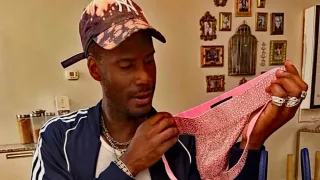
4 hours ago
'Criminal Minds' Makes Herstory As Rebecca Wilson and Dr. Tara Lewis Get Engaged
READ TIME: 3 MIN.
In a watershed moment for LGBTQ+ representation on network television, "Criminal Minds: Evolution"’s Season 18 finale delivered a story that has resonated deeply with viewers and the queer community alike. The episode saw Rebecca Wilson (Nicole Pacent), a recurring character introduced in recent seasons, accept a heartfelt proposal from her partner, Dr. Tara Lewis (Aisha Tyler), while surrounded by their colleagues at the BAU. This engagement marks a pivotal narrative milestone—not only for the show, but for mainstream media’s portrayal of queer relationships .
The significance of this engagement extends far beyond a romantic subplot. In a statement to Out, Nicole Pacent underscored just how meaningful it is for her—and for queer audiences everywhere—to see this kind of relationship presented without stereotypes or sensationalism. “After nearly 20 years acting in and self-generating indie queer media, it's hard to put into words just how much it means to me to be part of the queer love story on a mainstream juggernaut like Criminal Minds,” Pacent told Out .
Pacent continued, “In the show's 18-season run, my character, Rebecca Wilson, is the first recurring LGBTQ+ character who is neither victim, nor villain. The relationship between Tara (Aisha Tyler's character) and Rebecca is written in a way that reflects the real-life highs and lows of a normal queer couple.” The actress highlighted the authenticity and depth given to their relationship, which stands in stark contrast to the tokenism or tragedy that has so often defined queer representation in procedural dramas .
The engagement was not simply a plot device, but the culmination of a thoughtfully developed relationship between two women who are colleagues and equals. Dr. Tara Lewis, a tenured profiler in the Behavioral Analysis Unit, and Rebecca Wilson, a legal expert, have navigated personal and professional challenges together. Their dynamic has been characterized by mutual respect, love, and the support of their “chosen family”—the BAU team .
As Pacent stated, “Despite the extraordinary personal and professional circumstances they find themselves in as colleagues at the FBI, Tara and Rebecca so clearly love, respect, and fight for each other, and their chosen family so clearly loves, respects, and fights for them right from the jump. The result, I have found, is what I have been fighting for all these years: Queer people and queer love normalized for a mainstream audience, and written in a way that makes our community feel seen, supported, and included in shows that mean so much to them” .
The response from both critics and fans has been overwhelmingly positive. Many have praised the show’s writers and producers for not only including an LGBTQ+ love story, but for doing so with nuance and dignity. For a show that has run for nearly two decades and has often centered on the darkest aspects of humanity, the decision to feature a joyful, affirming queer engagement is especially powerful .
Aisha Tyler, who has portrayed Dr. Tara Lewis since 2015, also commented on the importance of telling stories that reflect the diversity of real life. In interviews, Tyler has spoken about the responsibility she feels to ensure her character’s journey is both meaningful and relatable to LGBTQ+ viewers and their allies .
With the Season 18 finale setting the stage for a possible wedding in Season 19, fans are eager to see how the relationship between Tara and Rebecca continues to unfold. The show’s creative team has not yet revealed specific details about the next season’s storyline, but there is widespread hope that the couple’s journey will continue to be depicted with the same care and authenticity that has defined their relationship thus far .
For now, the engagement stands as a beacon of progress and a testament to the power of inclusive storytelling. As more mainstream series follow suit, the hope is that LGBTQ+ viewers will see themselves reflected—not as sidekicks or stereotypes, but as fully realized people whose stories are worth telling.






